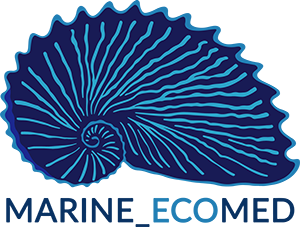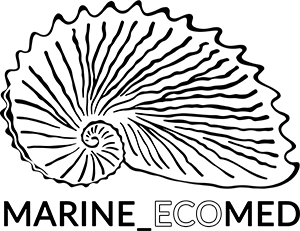About us
All the institutions involved are phisically based on the European coast of the Mediterranean over an area that goes from the Eastern part (Greece) to the Western part (Spain) of the entire Mediterranean basin. The choice to create an heterogeneous transnational network of institutions spread through the entire basin was pursued during the designation of the project to integrate all the peculiarities of the different natural and socio-economic contexts proper of the Mediterranean region.
We recognize each institution involved have different approaches to education and research and we want to valorize and integrate this precious diversity along the project through the exchange of knowledge and good practices.
 Iuav University of Venice was established in 1926 as one of the first Architecture Schools in Italy. To this day, it still maintains its unique status. It is a design-themed university focusing on the teaching, research and practice in the design of living spaces and environments (buildings, cities, landscapes and territory) and in the design of everyday use objects, of fashion and of graphics.
Iuav University of Venice was established in 1926 as one of the first Architecture Schools in Italy. To this day, it still maintains its unique status. It is a design-themed university focusing on the teaching, research and practice in the design of living spaces and environments (buildings, cities, landscapes and territory) and in the design of everyday use objects, of fashion and of graphics.
Based at Iuav, the Planning Climate Change research group recognizes the spatial planning as part of the complex and dynamic set of relationships between man and nature. Planning Climate Change is composed of young researchers with different skills and experiences and performs theoretical and applied, innovative and multidisciplinary researches. The consolidated experience of group’s researchers, with different and complementary specializations, guarantees them the possibility to provide an integrated and synergic vision of spatial planning. Maritime spatial planning (MSP) is, among others, a main research focus at Planning Climate Change which has collaborated to support the implementation of the MSP in the Mediterranean through several European projects.
The research group’s main feature is the ability to coordinate and manage all phases of research and project, from the initial design up to the implementation.
The research group works with several organizations, professionals and technicians to deal with the complexity and the multidisciplinary nature required by the research topic.
 Aix-Marseille University (AMU) covers many fields of knowledge (sciences, economy, health, laws, litterature, human sciences).
Aix-Marseille University (AMU) covers many fields of knowledge (sciences, economy, health, laws, litterature, human sciences).
Among its components, the Observatoire des Sciences de l’Univers (OSU) Pytheas is focused on environmental sciences in the most general meaning, from the deep ocean to space, with more than 1000 persons working in five laboratories. One of them, the Mediterranean Institute of Oceanography (MIO), leads researches on the role of oceans in the earth functioning. As AMU is located on the boundary of the Nothern Mediterranean Sea, a special focus is done on this particular ecosystem.
Activities performed at the MIO linked to the project concern the impact of global change on Mediterranean systems and related ecosystems services. The scientific fields cover physical oceanography at several spatial scales (from the whole Mediterranean sea to local coastal regions in the Nothern Mediterranean sea), marine chemistry including contaminants (fate and distribution), biogenic elements, interfaces fluxes and marine ecology with an integrated approach of ecosystems functioning.
 Aristotle University of Thessaloniki (AUTh) is the largest university in Greece. It comprises of 10 faculties which consist of 40 schools. The Department of Ecology (DoE), hosted in the School of Biology, is one of the most active research departments in the field of ecological science in Greece. The DoE attempts to capture a more holistic picture of the dynamic and multidimensional processes that structure biodiversity patterns and ecosystem services in our changing planet. In line with the needs and priorities raised by EU’s environmental agenda, the DoE aims to integrate knowledge, offer novel tools, combine scientific expertise and draw sound policy recommendations for a sustainable future.
Aristotle University of Thessaloniki (AUTh) is the largest university in Greece. It comprises of 10 faculties which consist of 40 schools. The Department of Ecology (DoE), hosted in the School of Biology, is one of the most active research departments in the field of ecological science in Greece. The DoE attempts to capture a more holistic picture of the dynamic and multidimensional processes that structure biodiversity patterns and ecosystem services in our changing planet. In line with the needs and priorities raised by EU’s environmental agenda, the DoE aims to integrate knowledge, offer novel tools, combine scientific expertise and draw sound policy recommendations for a sustainable future.
 SUBMON is an NGO founded in 2008 which works in the study, conservation, management and awareness of the marine environment. It concentrates mainly around issues related to protected species and ecosystems, working to preserve the marine biodiversity with the final aim of achieving a sustainable use of the marine environment. We aim to achieve this by promoting a change in the relationship between society and the Ocean. Furthermore, SUBMON is made up of a multidisciplinary team of specialists and professionals (biologists, veterinarians, engineers, environmental educators). We carry out in situ work, through specialized research and conservation projects completed in the field. Then it uses the knowledge and findings resulting from this research and work to improve the conservation of the marine environment, both through the application of those findings into improving the management of marine protected areas, an through the “translation” and transmission of that knowledge and care for the marine environment to the society in general.
SUBMON is an NGO founded in 2008 which works in the study, conservation, management and awareness of the marine environment. It concentrates mainly around issues related to protected species and ecosystems, working to preserve the marine biodiversity with the final aim of achieving a sustainable use of the marine environment. We aim to achieve this by promoting a change in the relationship between society and the Ocean. Furthermore, SUBMON is made up of a multidisciplinary team of specialists and professionals (biologists, veterinarians, engineers, environmental educators). We carry out in situ work, through specialized research and conservation projects completed in the field. Then it uses the knowledge and findings resulting from this research and work to improve the conservation of the marine environment, both through the application of those findings into improving the management of marine protected areas, an through the “translation” and transmission of that knowledge and care for the marine environment to the society in general.

The Tethys Research Institute is a non-profit research organisation supporting marine conservation through science and public awareness, founded in 1986 and headquartered at the Civic Aquarium of Milano, Italy. Since its beginning, Tethys has promoted research and conservation activities on marine mammals, in particular cetaceans (whales and dolphins) and the critically endangered Mediterranean monk seal, although investigations have also extended to devil rays and marine turtles. Research activities have taken place mainly in the Mediterranean Sea, but also in the Black Sea, the North Atlantic, the Caribbean, the Red Sea and Antarctica. Tethys first conceived and proposed the creation of an iconic protected area, the Pelagos Sanctuary for the Conservation of Mediterranean Marine Mammals (in 1991), which was also the world’s first marine protected area established beyond national jurisdiction. Another important element of Tethys’ contribution to marine conservation is public awareness, achieved through the institute’s involvement, as research volunteers, of thousands of people from all over the world in its conservation activities (cruises and field bases).
 iSea is a Not-for-profit non-governmental organization, founded in 2016 in line with the Articles 741 et seq. of the Civil Code and the applicable company law legislation of the Greek State. The overall aim of iSea is to preserve and restore the precious and unique heritage of the natural aquatic environment; its main pillars focus on the following four topics: aquatic litter, the relation of humans with aquatic ecosystems, alien/invasive species, and fisheries.
iSea is a Not-for-profit non-governmental organization, founded in 2016 in line with the Articles 741 et seq. of the Civil Code and the applicable company law legislation of the Greek State. The overall aim of iSea is to preserve and restore the precious and unique heritage of the natural aquatic environment; its main pillars focus on the following four topics: aquatic litter, the relation of humans with aquatic ecosystems, alien/invasive species, and fisheries.
iSea also aims the protection of aquatic ecosystems through the sensitization of the state, managers, and public opinion, to take action when and where is a necessity. iSea uses a variety of tools including scientific research, citizen science and environmental awareness raising campaigns, in order to inform on the negative impacts of climate change on aquatic ecosystems and promote sustainable development, based on technical expertise and striving for social, economic, and environmental welfare.


